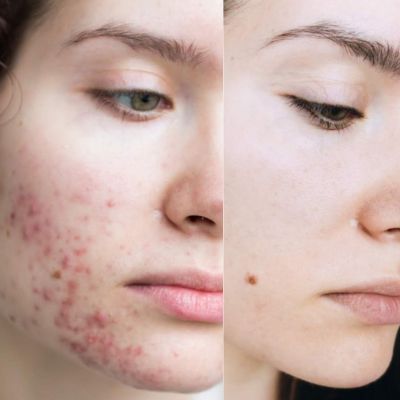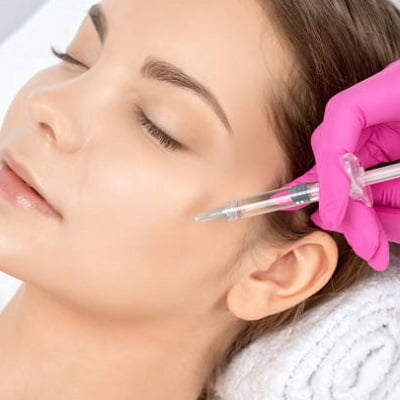
Common skin issues encompass pimples and acne scars, which affect many people. Dealing with them may be disturbing and cause one to lose self-assurance. Many exceptional remedies are available, so choosing the exceptional one might be challenging. One increasingly used healing preference is glutathione. Still, Does Glutathione Heal Acne and Acne Scars?
What is Glutathione?
Glutathione, a naturally occurring antioxidant, is vital for pores, skin health, and general well-being. It is located in diverse foods like meats, vegetables, and results and has won popularity in skin care because of its capacity to fight getting old signs and enhance pores and skin health. Its functions include cleansing, immunity raise, and skin upkeep, making it increasingly used in pores and skin care treatments.
Importance of Glutathione:
Glutathione, composed of cysteine, glutamic acid, and glycine, protects the body from pollutants and unfastened radicals. Many people have scars from zits, a standard facial condition. Dealing with them could be frustrating and could motivate you to lose faith. Given the abundance of treatments, deciding the right one is probably tough. One medication that is applied an increasing number of times is glutathione. And then there is glutathione.
Why is Glutathione Significant?
- Comprising cysteine, glutamic acid, and glycine, glutathione shields the frame against toxins and unfastened radicals.
- Usually present in every mobile device, it is vital for immune systems, cleaning, and skin health.
- Acting as a herbal detoxifier, it slows down aging and enhances mobility.
- Moreover, it is a primary component in anti-growing older skin care since it guards the pores and skin from reactive harm.
- It cleans the face and frame, avoiding pimples, wrinkles, crow’s feet, age spots, liver spots, brown spots, lentigines, and dark circles.
- Known because the “master antioxidant,” glutathione is produced via the body.
- It’s broken via low-first-class meals, smog, chemical substances, medicines, fear, aches, getting old, infections, and radiation.
Glutathione and Acne Treatment:
Many factors may lead to acne, including inflammation, germs, and too much oil production. Though glutathione does not mainly target these factors, its antioxidant qualities help to lower inflammation, a vital component in acne’s growth. Reduced inflammation, made possible by glutathione, may help to calm acne flare-ups and stop the emergence of fresh ones.
Moreover, glutathione helps with liver detoxification, which can indirectly improve the skin. Effective detoxification of toxins from the body depends on a well-functioning liver, which helps reduce the likelihood of toxins causing skin disorders like acne.
Does Glutathione Heal Acne and Acne Scars?
When the skin suffers damage and heals from acne, scars result. Does Glutathione Heal Acne and Acne Scars? Scars might appear as black patches or have different textures, including elevated sections or pits. Over time, glutathione’s skin-lightening qualities may help lessen the look of hyperpigmented scars. By lowering melanin synthesis, glutathione acts to fade dark patches progressively.
Glutathione alone, however, may not be sufficient for textured scars. Other treatments, such as microneedling, laser therapy, or chemical peels, can help improve the texture of acne scars and skin tone.
Strategies for Using Glutathione to Treat Scars and Acne
- Oral pills, topical creams, and intravenous (IV) therapies are only a few of the many types of glutathione that are accessible. Every approach has benefits as well as drawbacks:
- Oral pills are freely available and somewhat familiar. Conversely, the oral absorption rate of glutathione might be lower than other approaches.
- Topical creams can heal the skin and can target particular locations. They work quite well in lowering pigment and improving the skin’s general appearance.
- IV therapies: These solutions guarantee the effective delivery of glutathione into the circulation by their remarkable absorption rate. Still, they might have more expenses and require professional management.
Potential Negative Reactions and Consideration Factors
Though glutathione is usually safe, it is advisable to see a medical practitioner, especially regarding IV therapies. Side effects include stomach issues, skin rashes, and allergic responses. One should be aware that results might vary from person to person.
Final Thoughts:
Including glutathione in your skincare regimen will be very helpful, especially if you have hyperpigmented acne scars or acne itself. Its antioxidant qualities may help lower inflammation and encourage a more even, clean complexion. Before starting any new therapy, always be sure a healthcare practitioner provides direction suitable for your skin type and condition.
Book an appointment at SKN Cosmetics Islamabad for the best and most advanced treatment for skin problems, including acne and acne scars.



